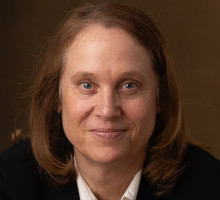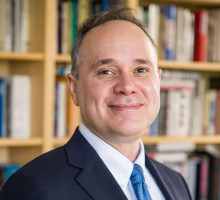
Reviews
A critical resource for envisioning the future of higher education, this collection tackles the persistent challenges of inequity, inertia, and exclusion in educational institutions. It calls for a reimagining of teaching and learning practices, urging us toward responsive, holistic, sustainable, and equitable frameworks that support all students, especially the most vulnerable. Essential for those dedicated to building a just and more responsive educational environment.
If you find yourself hoping that higher education doesn't simply snap back to its pre-pandemic state, this book offers a compelling collection of roadmaps forward. With an impressive plurality of voices and perspectives, these fundamentally hopeful essays widen the scope of data, evidence, frameworks, histories, and cases to draw from in the important work of creating the future of learning.
While incredible unfortunate, the pandemic provided a collective opportunity for us to rethink what constitutes what we offer in the name of an equity-minded education. This wonderful group of authors provides a philosophical base to guide that thinking. The lessons learned about resilience and adaptability are not only relevant for how we responded to that event, but also on how we can reconstruct the higher education experience.
Book Details
Introduction, by Maggie Debelius, Joshua Kim, and Eddie Maloney
Part I: New Systems and Structures
1. Centering Resiliency: Principles for Academic Leaders and Teaching Center Directors, by Matthew
Introduction, by Maggie Debelius, Joshua Kim, and Eddie Maloney
Part I: New Systems and Structures
1. Centering Resiliency: Principles for Academic Leaders and Teaching Center Directors, by Matthew Kaplan, Mary C. Wright, and Derek Bruff
2. Converting Teaching from Solo Sport to Team-Based Activity: Lessons Learned from a Systemwide Instructional Design Support Initiative, by MJ Bishop, Nancy O'Neill, Briana Johnson, and Whitney Kilgore
3. Creating Transformational Change Through Learning Innovation Departments, by Sean Hobson and Natalie Landman
4. An Ecology of Change in Higher Education, by Michael Goudzwaard and Cynthia A. Cogswell
5. Digital Education for Access and Equity, by Annie Sadler, Martin Kurzweil, and Matthew Rascoff
6. The Shifting Institutional Data Landscape and Why It Matters for Student Learning, by Drew Allen
Part II: The Post-Pandemic University
7. The Post-Pandemic University: Critical Questions for Infrastructure, Practice, and Culture, by Kathryn E. Linder, Constancio Nakuma, and Monique Snowden
8. From Covid to Climate Change: Parallels, Parables, And Possibilities for the Future of Higher Education, by Bryan Alexander
9. The New Experimental College, by Elliott Visconsi
10. Architecture of the Unexpected: Beyond the Learning Paradigm, by Randy Bass
Part III: Toward Greater Access Equity and Inclusion
11. Beyond "Zoom University": A Heuristic for Advancing Inclusive Digital and Online Pedagogy, by Jenae Cohn
12. Pandemic Fever Pitch Terms That Defined A Moment In Higher Education, by Lorna S. Gonzalez, Megan Eberhardt-Alstot, and Jill Leafstedt
13. Institutional and Instructional Humility for Equity-Forward Teaching and Learning, by Amy M. Johnson, Jonathan Iuzzini, Peter Felten, and Tazin Daniels
14. Ableism and Conflicts of Care in the Post-Pandemic University, by Libbie Rifkin
15. Toxic to Transformational: Women and the Higher Ed Ecosystem Post-Pandemic, by Patrice Torcivia Prusko
16. Access Equity: A Primer on Reconsidering Edtech in Higher Education, by Rolin Moe
Part IV: What We Have Learned About Teaching and Learning
17. Learning about Learning: Students' Insights from a Pandemic Year, by Sophie Grabiec, Sherry Lee Linkon, Isabel McHenry, and Lillian Nagengast
18. Recentering Relationships: What We Learned from Building Closeness at a Distance, by Molly Chehak and David Ebenbach
19. The Work Goes On: Centering Relationships and Reimagining Practices That Support Learning, by Catherine Ross, Amanda Irvin, and Suzanna Klaf
20. "Why Haven't We Always Done This?": The Future of Faculty Learning 390, by Betsy Barre
21. Purpose, Learning, and Justice: Maintaining Hopeful Practices Past the Pivot, by Susannah McGowan and Isis Artze-Vega
22. Everything Is Different but Nothing Is New: The Missed Opportunity of Reform in the Wake of COVID-19, by Kashema Hutchinson, Sujung Kim, Adashima Oyo, and Katina Rogers
23. In the Role of Learners, by Nancy Chick
Contributors
Notes
Index







